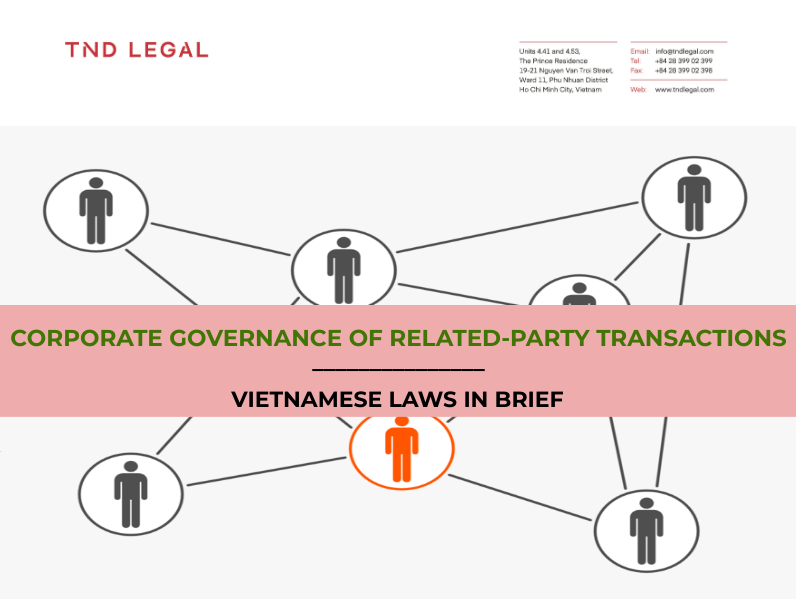Nguyen Quoc BAO – Nguyen Thi Tu UYEN
Introduction
The corporate governance of related-party transactions (the “RPT(s)”) stems from the recognition that persons in whom the directorial, managerial or influential power over a company is vested can compromise (or be enticed to compromise) their fiduciary duties towards such company to maximise their personal interests. In layman’s terms, an entry into a RPT may not genuinely represent the interests of the company but may be, more or less, affected or motivated by personal gains. Absence of rules on controlling RPTs will allow certain stakeholders opportunism to ripe pecuniary private benefits at the expense of the company. For instance, uncontrolled RPTs may cause property damage or even affect the financial position and debt solvency of the enterprise. The lack of transparency in RPTs also significantly degrades the reputation of the enterprise, thus adversely affecting any investment decision of the investors .
From an international perspective, the basic rules for controlling transactions between the company and its related persons are commonly established in the corporate laws and securities regulations and this also applies to Vietnam. The general concept of RPTs were originally introduced in Law on Enterprise 1999 and now sits in the Law on Enterprise 2020.
In light of the laws of Vietnam, this article seeks to address the following questions :
1. What are the transactions that fall within the boundaries of RPTs?
2. What are the statutory requirements applicable to the RPTs?
3. What are the legal consequences for the non-compliance with the statutory requirements applicable to the RPTs?
For the sake of description and analysis to be made hereunder, this article will not touch upon the RPTs regime under the securities laws.
READ FULL ARTICLE HERE
___________________________________________________________________________
This article is a joint publication between TND Legal and Kien Thuc Phap Ly.

